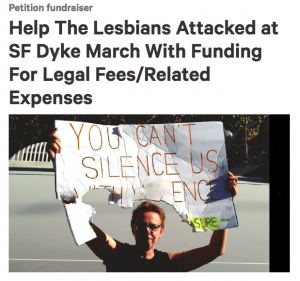I spoke about the importance of building the veganic movement at the Compassionate Living potluck this weekend and I will give a few more talks on this topic in the next months. It is wonderful to see interest in this issue catching on. When I decided to focus on veganics a few years ago, there was very little information on social media and even less interest. In Fall 2015, while organizing the first People’s Harvest Forum, I went to a local animal rights meetup to present on what I was doing and why, and I told them that even from a strictly animal rights perspective, activists need to prioritize veganic farming. As the food movement gained popularity, the image of animal-based sustainable agriculture that it put forth was serving to delegitimize veganism. But it seemed niche and abstract to speak about how food is grown, only relevant to food activists or gardening hobbyists, and there was no interest. Less than two years later, the same group is now organizing their own discussions on veganics.
It’s a good time to clarify what my advocacy of veganic farming is about. My message is not that animal agriculture can never be sustainable or that veganic is the only way to achieve the goals of the food movement. It’s great to debunk misinformation around the sustainability of organic and small-scale animal agriculture; I do a bit of that in my presentations and I plan to do more. However, I am primarily coming at this from a different angle. I aim to show that agroecology can exist within a vegan framework. We do not have to choose between agroecology and animal liberation, and we should neither stand for the delegitimization of veganism that occurs when only one version of organic is made visible, nor reject the positives of this movement because we believe it is incompatible with our ethics.
Within various approaches to growing food, veganic can be thought of as an approach onto itself, distinct from others:
Conventional
Organic
Agroecology
Regenerative
Veganic
But we can also think of it this way:
| Non-vegan |
Vegan |
| Conventional |
Conventional |
| Organic |
Organic |
| Agroecology |
Agroecology |
| Regenerative |
Regenerative |
Coming from this latter view, my priority is not to convince people that veganic is more sustainable than other organic approaches, and I do not want to reinforce the notion that agroecology and veganic are discrete categories. When veganism becomes mainstream, all types of farming will exclude cows, chickens, pigs and other so-called farm animals. Of course, we’ll no longer qualify this as vegan, just as we don’t use a qualifier to signal that we exclude dogs from our farming or cooking. As vegans, we don’t need to wait for the majority to get there. We can work within a vegan framework, where agroeocology is automatically vegan agroecology, permaculture is automatically vegan permaculture, and so on.
For some, what is written above is counter-intuitive because… don’t organic farming, agroecology, permaculture, and certainly regenerative agriculture necessarily include farm animals? It is this misconception that vegans must address. The Eurocentric image of idyllic farmland with cows frolicking around green pastures, and the erasure of models that do not center farm animals, reassures consumers and activists that animal exploitation is good and proper. They also imply, in a way that is often subtle but always powerful, that the only alternative to small-scale animal-based agriculture is a food system dominated by Monsanto and run on fossil fuels.
The thing is, this false dichotomy is now effectively a real dichotomy as far as consumers are concerned. Many vegans rightfully prefer to buy organic over conventional, but their dollars are supporting the factory farm system.* There is an immediate need to grow the veganic movement from this perspective, but more urgent and far-reaching is to work at a cultural level. We need to deconstruct and change the narrative. This is the project I’ve taken on.
For more information on veganic farming, check out Veganic World.
* For more details, read my interview with veganic farmer Matt Loisel.

 After the women were attacked at the SF Dyke March, the march, the National Center for Lesbian Rights and the Bay Area Reporter posted defamatory statements about them. Please support them by signing their petition for a retraction of these statements and by supporting their fundraiser for legal expenses.
After the women were attacked at the SF Dyke March, the march, the National Center for Lesbian Rights and the Bay Area Reporter posted defamatory statements about them. Please support them by signing their petition for a retraction of these statements and by supporting their fundraiser for legal expenses.
